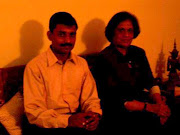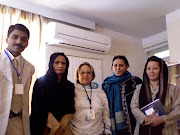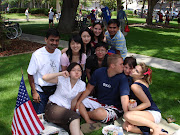The Islamic world has responded to the globalizing changes at inward-oriented and outward-oriented levels. At the first level some Islamic states joined other multi-lateral globalizing institutions with a view of benefiting from them. At the second level, the main inter-governmental institution of the Islamic world – Organisation of Islamic Countries, brought about some significant changes in its agenda and attempted to establish a dialogue with the West. However D-8 or Developing – 8 was structured not as an organization, but as a mechanism for development of cooperation among, Islamic countries from regions stretching from South East Asia to Africa. It was on 10 June 1997, the heads of state of the eight countries - Bangladesh, Egypt, Indonesia, Iran, Malaysia, Nigeria, Pakistan and Turkey - met in Istanbul and issued the “Istanbul Declaration” which represented the birth certificate of the D-8 Group. The idea of D-8 was mooted by Dr Necmetin Erbakan., the former Prime Minister of Turkey during a Seminar on “Cooperation in Development”, held in Istanbul in October 1996.
The main objective of D-8 to be socio-economic development in accordance with the following principles: Peace instead of conflict, Dialogue instead of confrontation, Co-operation instead of exploitation, Justice instead of double-standards, Equality instead of discrimination, Democracy instead of oppression. The principal organs of the D-8 are the Summit, the Council and the Commission. The Summit, which is the supreme body of D-8 is composed of heads of state / government of member states. It is convened every two years - the first summit in Istanbul in 1997, second summit in Dhaka in 1999, third in Cairo in 2001 and their recent summit in Tehran in 2004. Bearing in mind that the seven year long efforts to develop multifaceted cooperation among the eight countries did not produce much, the leaders has specified 10 fields of cooperation, each of which was entrusted to each member state. The fields and country coordinators are Trade (Egypt). Finance Banking, and Privatization (Malaysia), Manufacturing and Health (Turkey), Telecommunications and Information (Iran), Rural Development and Culture (Bangladesh), Agriculture including Aquaculture (Pakistan), Human resource Development and Poverty Eradication (Indonesia), and Energy (Nigeria).
May 2006 Summit at Bali:
The fifth summit of D-8 is scheduled to be held during May 9- 13, 2006 in Bali, Indonesia. Seven heads of state or government have been confirmed to attend the summit of eight developing countries (D-8). The D-8 summit is also expected to come up with a leaders' declaration on global issues, including peaceful use of nuclear power, agreements on preferential trade and pacts on administrative assistance on customs matters. The summit in Bali is expected to produce a Bali declaration and two cooperation agreements.
Deepened Disparities:
Although the achievements have increased the ability of the Islamic world to cope partially with some aspects of globalization, they have not been effective in bringing about a qualitative change in such ability. This is essentially because of various variables:
(i) Non-Homogeous: The Islamic world is not a homogeneous entity. It is divided along virtually all socio-economic and political lines of comparison including religious ones. All the countries participating to this initiative are members of other global or regional communities, and their economic and political priorities are intensified on other organizations. For Turkey, membership for the EU is the main goal of the foreign policy. For Pakistan, membership for Shanghai Cooperation Organization is essential (other than observer status).
(ii) Pressures from global powers: The Islamic world is deeply penetrated by ‘powers of globalization’. The economies and security models of the Islamic world are mostly influenced by the agenda of the Western powers. Eg, EU initiatives towards Mediterranean and some Middle Eastern and Gulf countries, on one hand generate a new understanding of trans-regional cooperation.
(iii) Rivalries and conflicts: Rivalries and conflicts among Islamic states over regional leaderships, and territorial issues are acutely clear in the case of West Asia. Iran and Turkey are members of ECO, but they compete in Central Asia. Understandably, Saudi Arabia did not join the D-8, as it seemed to compete with its own organization, the OIC.
(iv) Economic Disparity: Among the D-8 countries, Malaysia is one of the most developed and advanced countries in Southeast Asia. Turkey is considered one of the advanced countries of the Islamic world. On the other hand, countries like Iran and Nigeria, whose main income is from oil; and countries like Bangladesh and Pakistan, who, despite some changes in recent years, have not been able to improve living conditions.
(v) Geographical discontinuity: Apart from being sprinkled across disparate portions of Asia and Africa, D-8 countries also have widely different levels of economic growth. These countries do not have any geographical contiguity. They are separate pieces of land scattered all over the world, and it's not clear how these eight countries are going to form a sort of common market to promote economic development among themselves. The necessary ingredient is missing, and that is the geographical contiguity.












No comments:
Post a Comment